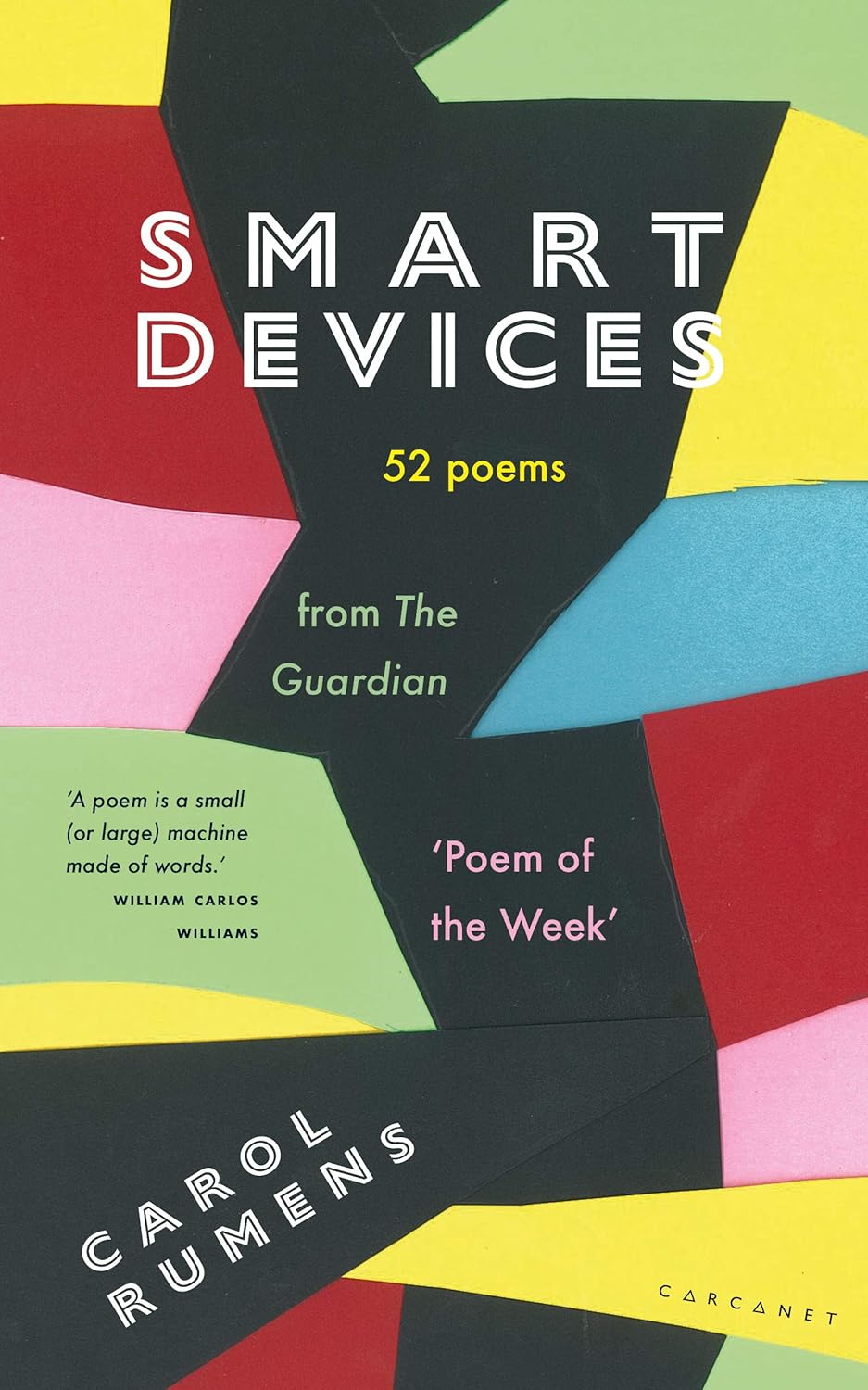
Smart Devices: 52 Poems from The Guardian 'Poem of the Week'
FREE Shipping
Smart Devices: 52 Poems from The Guardian 'Poem of the Week'
- Brand: Unbranded

Description
There were four countries in the imaginary Federation. Branwell and Charlotte focused on the one called Angria but, when Charlotte went away to school, the younger siblings Anne and Emily eagerly devoted themselves to the continuation of the drama in their own country, named Gondal. Note: in print, Second Sleep has the right-hand marginal justification usual to the prose poem, but impossible to reproduce here. The italics have been added for this online text with the author’s permission.) Yet this estrangement when examined in a poem can become a different and sharpened way of seeing. Williams’s characteristically laconic wit and casual tone are apparent in the poems of Lines Off, but the vision is at times more surreal, perhaps closer to that of the 20th-century poets of eastern and central Europe, such as Vasko Popa. This week’s choice is an abridged version of another great Dafydd ap Gwilym poem, Morfudd Like the Sun (Morfudd fel yr Haul). With this commentary by the scholar, translator and editor, M Wynn Thomas, the Morfudd sampling would be an ideal introduction for readers new to Gwilym’s work.
Importantly, many of the Watershed poems engage with the human psychology that’s so frequently, and so foolishly, ignored at the present tumultuous “watershed” moment. Padel uncovers the mirror, reveals the universality of climate denial. She allows us a small smile towards our inner Mrs Noah, who tries operatically to resist boarding the Ark, and has to be “dragged up the gangplank / waving a goblet / shouting I will stay with my gossips.” (Rehearsing Noye’s Fludde). On the other hand, there’s the “blast / of climate terror,” the sudden, equally incapacitating sensation “as if a pub in that crystal cave at the end of the world / held a darts match for the blind / and the boards were our bodies … our hearts.” (Lady of the Lake). Few of the poems are as painful as that image, but they all dramatise the loss we face. And so, among the small twists and turns of surprise in the narrative, we find the speaker preparing to “jot down where I’d like my body found”. Reticence hedges the plan: the identity of the finder, and the time the discovery is to occur are both “better left”. The idiom is one of understatement, and suggests perhaps a northern English terseness. It slips gracefully into the poem’s diction, its habit of never expanding beyond the essential. Interpretation also may be “better left”, and psychological symbols resisted. Maybe it’s best to let the place-person hybrid remain a mysterious entity, freed by the poem’s shifting boundaries of land and water, indoors and outdoors, to float between states of being. Ronald Stuart Thomas was born in Cardiff in 1913. When he was five, his father, who had served as an officer in the merchant navy, began working for the Irish ferry service and moved the family to Holyhead, described later by Thomas as “a horrible little town with a glorious expanse of cliff and coastal scenery”. Thomas went on to study classics at the University College of North Wales (now Bangor University). Ordained as a minister of the Church of Wales, he subsequently left north for mid-Wales and elsewhere, but still seems to have felt an outsider; his ancestors were mostly English speakers from the south of the country and English was his mother tongue. Although he learned Welsh as a young man, and chose it as the medium for his autobiographical writings, it wasn’t the language of his poetry. Drummond Allison was born in Caterham, Surrey, in 1921. He took a “wartime shortened” history degree at Queen’s College, Oxford, where he formed a close friendship with the poets John Heath-Stubbs and Sidney Keyes. After military training at Sandhurst, he joined the army as an intelligence officer and was killed in action in Italy, at the age of 22. This week’s poem was published in his posthumous collection, The Yellow Night (1944).This week’s poem, recalling the experience of wild camping on Dartmoor, was Sean Borodale’s response on 13 January to a local landowner case against the use of the moorland for this purpose. In a prose-note to the poem, Borodale wrote: “Wild camping is a frail, frayed remnant of deeper engagement, and the writing of this poem is an appeal against the belief that powerful landscapes are only for the wealthy, to be reserved for specific kinds of recreation – hunting, shooting – or as passing photo opportunities.”
Pool is from the New Poems section of Rowan Williams’s Collected Poems. As well as the Waldo Williams translation mentioned earlier, Poem of the week has previously featured Rowan Williams’s poem about the Russian iconographer Andrei Rublev. Ultimately, of course, there’s no Krishna to bring light and redemption to this moral anguish. If the writing of a poem might once have had redemptive potency, the poet now disconnects the current by her question “What has a poem got to do with this?” The question seems to anticipate the answer, “nothing: it’s no help to anyone – not even the poet”.The poem was probably written in April 1930. Among the subsequent small changes he records, Mendelson notes that in Auden’s lover Chester Kallman’s copy of Poems (1934), Auden revised the first line to “Your lunar beauty”, but that this change isn’t made in any further printings. The initials JC appear in Kallman’s copy: the identity of JC is unknown. Snow-Flakes appears in Longfellow’s 1863 collection, Birds of Passage, in which the poems are organised in “Flights” (Snow-Flakes is from “Flight the Second”). Although the date of the poem’s actual composition is unknown, the elegiac intensity suggests a response to the death by fire of the poet’s wife, Frances Appleton, in 1861.
- Fruugo ID: 258392218-563234582
- EAN: 764486781913
-
Sold by: Fruugo
